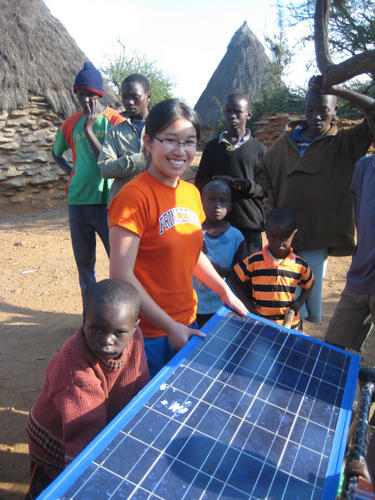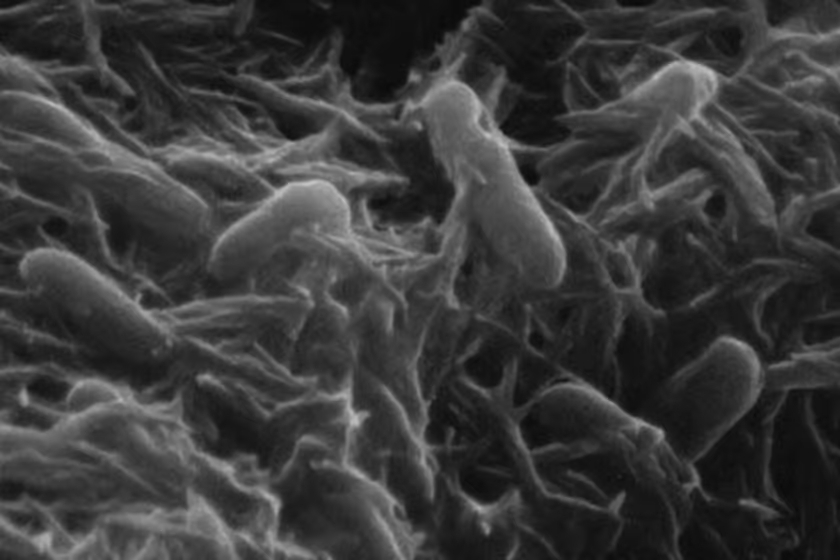
She could teach Kenyan children how to construct and fix the device if it breaks
Eden Full, a 19-year-old Princeton University mechanical engineering student has developed a non-toxic, cheap, recyclable device made out of metal and bamboo that allows solar panels to follow or track the Sun without the use of an electric motor. This does two things: 1) it boosts the output of the solar panels by about 40% (huge) and 2) it does so using a much cheaper and simpler method than traditional trackers commonly used in commercial projects (her technology costs $10, a lot less than the typical $600 solar tracker).
I love the bit in the video below where she says that she could teach Kenyan children how to construct and fix the device if it breaks. That’s the way to help the world!
Eden and the SunSaluter (being developed by her company, Roseicollis Technologies, now) have won a number of big awards for this ‘simple’ device. As mentioned above, she just won $275,000, in the 2011 Postcode Lottery Green Challenge. She also won $10,000 in the the EcoLiving 2011 Awards a few months ago, and she’s also won a $100,000 fellowship from the Thiel Foundation this year. More on that from Tyler Hamilton of Clean Break:
On May 25, Full was one of 24 students under the age of 20 to win a $100,000 fellowship from the Thiel Foundation, set up by PayPal co-founder and early Facebook investor (read: super rich dude) Peter Thiel.
It’s not just a handout, however. To get the money, Full must commit to taking a two-year break from her studies at Princeton so she can dedicate herself full time to developing her product, which she calls the SunSaluter.
Full is taking the plunge. In mid-August she is packing her bags and moving to Silicon Valley, where she’ll be mentored by a network of entrepreneurs and tech experts working with Thiel. She’ll be learning how to develop her product, but also how to build a business and raise money.
She emphasized that the $100,000 award doesn’t necessarily go toward technology development. It covers living expenses, allowing Full to throw herself into her work without worrying about paying bills.
“The money will give me a chance to make mistakes and learn from those mistakes,” she said.
I asked her if she was nervous being parachuted into this high-tech heartland.
“I do feel very intimated, not only by the calibre of the other projects, but because there’s a huge standard to meet and a lot of hype around it,” she continued. “But a little pressure is good. It will make me perform better.”
How the SunSaluter Works
Hamilton does a good job of explaining the technology as well, as much as is possible until Eden receives her patent and can safely reveal more:
The concept is simple, really. Steel expands at a different rate than aluminum when exposed to heat. Full has combined steel and aluminum into bimetallic strips, which are attached to an axel running across the back of a solar panel.
She won’t go into too much detail until her patent on the invention is published, but when the sun hits the strips the resulting heat causes the aluminum part of the strip to expand more than the steel part. This causes bending and twisting of the strips.
Full has figured out a way to configure and control her system so that the bending strips keep her panels, for the most part, directly aimed at the sun.
Bookmark this page for “solar panel output” and check back regularly as these articles update on a very frequent basis. The view is set to “news”. Try clicking on “video” and “2” for more articles.
>








